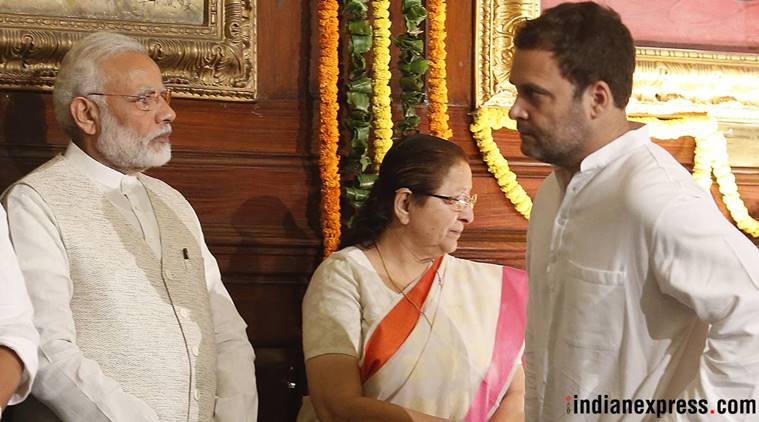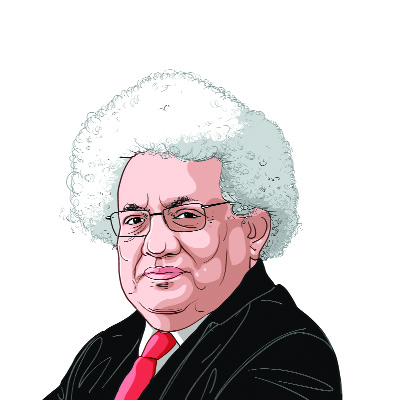Opinion Out Of My Mind: Minoritarianism
BJP has a formidable combination in Narendra Modi as a political leader and Amit Shah as an election fighting genius. The Congress has Rahul Gandhi but no one with election fighting record.
 The question is: who is better equipped to deliver deep reforms and steady income growth with low inflation? Narendra Modi or Rahul Gandhi?
The question is: who is better equipped to deliver deep reforms and steady income growth with low inflation? Narendra Modi or Rahul Gandhi?  The Congress has decided to take up the task of challenging the BJP on its home ground of the Hindu vote.
The Congress has decided to take up the task of challenging the BJP on its home ground of the Hindu vote.
Given the rising stakes, the 2019 elections are going to be a tough contest for all parties. There is still one year and several important state elections to come, to say nothing of by-elections. Nobody is likely to be able to forecast the correct outcome this far ahead.
But the systematic factors can be examined now. The BJP has an obvious advantage as it keeps winning state elections, though it won Gujarat with a narrow margin. Its performance in by-elections at the Central and state levels is patchy. But it has a formidable combination in Narendra Modi as a political leader and Amit Shah as an election fighting genius. The Congress, on the other hand, has Rahul Gandhi but no one with election fighting record. It remains to be seen if Rahul can be as effective a campaigner as Sonia Gandhi was in 2004. The BJP has an active cadre which is boosted further by the RSS at elections. The Congress has a few foot soldiers.
The Congress has decided to take up the task of challenging the BJP on its home ground of the Hindu vote. It will display its liberal Hindu credentials and castigate the BJP as an intolerant Hindu party. But the Congress was always a predominantly Hindu party anyway once Jawaharlal Nehru had gone. What it did was keep Muslims in their camp by raising the fear of the RSS. But the beneficiaries were the Ashrafis, the creamy layer. The bulk of Muslims stayed poor and deprived. There was no Mandal for them. After the Babri Masjid, the Muslims in the Hindi belt left the Congress for the Yadav parties.
So with its new stance, the Congress has made a virtue of necessity. The Congress will not seek the Muslim vote actively. But in a democracy, a large votebank such as the Muslims represent is never without friends. In each state where there is a substantial Muslim vote, local parties know how to garner it. Some of them will join the Congress-Mamata coalition.
The BJP has so far not sought Muslim vote either. Its policy on triple talaq may attract votes of some modern sections of the Muslim population. The NDA has only the JD(U) which receives Muslim support. So the Muslim vote will be largely secured by the Opposition. Even so, in each region, it will not be a walkover. Muslims have learnt that they relied on the Congress all these years only to remain neglected. Let us see if any one comes up with a programme which will please this large minority.
The fight over the other large minority — the Dalits — is already intense. Modi has convinced the BJP/RSS to be much more Dalit-friendly, though the grassroots are still reluctant. As Gujarat showed, the Dalits have learned never to get captured by a single party. The fight for the Dalit vote will engage the two large parties as well as the regional ones.
The bottom line is that in Indian democracy, majoritarianism is not enough. For one thing, the majority — the Hindus — is not a solid monolith. Hindus are divided into hundreds of jaatis and Mandal has valorised the jaati division. Add the Dalits and Muslims and you see why no single community will ever dominate India.


